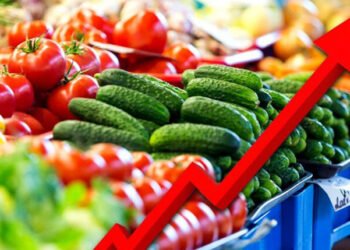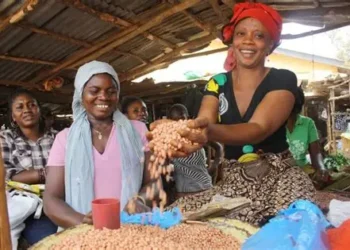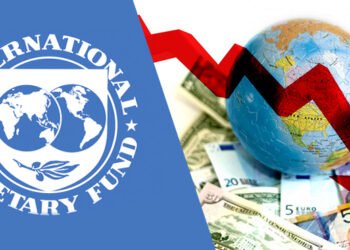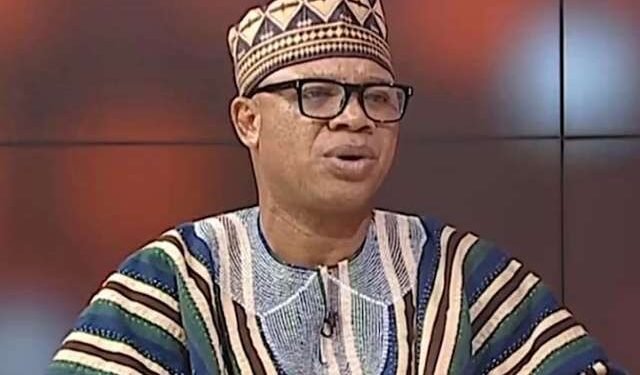In its latest outlook, the World Bank has projected a cautious path for global economic growth in 2024, citing various factors that continue to weigh on expansion.
The forecast anticipates growth of 2.8%, reflecting ongoing challenges such as fiscal consolidation, high inflation, elevated interest rates, and lingering macroeconomic uncertainties.
“Uncertainties are all projected to dampen private consumption and investment, limiting non-extractive sector growth.”
World Bank Outlook
Despite the subdued growth projections for 2024, the World Bank foresees a gradual rebound in subsequent years, with growth potentially reaching its long-term potential of around 5% by 2026 as prevailing conditions stabilize.
One key aspect highlighted by the World Bank’s report is the projected decline in the fiscal deficit, expected to shrink to 5% of GDP in 2024 due to ongoing fiscal consolidation efforts and external debt restructuring.
Looking ahead to 2026, Ghanaian authorities are aiming for even more significant fiscal improvements, targeting a primary surplus of 1.6% of GDP. This represents a substantial fiscal adjustment exceeding 4 percentage points of GDP between 2023 and 2026.
This positive outlook in part can be attributed to the authorities’ stabilization efforts supported by an Extended Credit Facility (ECF) program of the International Monetary Fund (IMF) for approximately $3 billion.
Mr. Seth Terkper, a former Finance Minister, admitted that the Fund’s program, though in its formative phase, has led to the Ghanaian economy showing some rebound, but described it as “a lackluster (an uninspiring) performance, which does not give much hope.”
“For a true assessment of every Fund program, normally it’s going to the end of the program; we’re barely a year into this one from the first review, but we’ve shown the positives.”
Mr. Seth Terkper
He however cautioned the government against complacency as Ghana begins to see some positive signs of economic growth under the ongoing US$3 billion loan-support programme with the IMF.

Furthermore, the projected outlook emphasized the need for continued policy adjustments and reforms to bolster economic recovery and address key challenges such as fiscal deficits and poverty reduction.
Empowering Inclusive Growth for Poverty Alleviation
Regarding poverty alleviation, the World Bank outlook suggests relatively stagnant progress between 2024 and 2025, with slow but steady improvement anticipated by 2026.
Despite anticipated improvements beyond 2024, addressing poverty requires targeted actions and policy measures to ensure a more inclusive and equitable economic recovery.
The government should invest in properly designed job creation programs and skill development initiatives to enhance employment opportunities, particularly in sectors outside of the extractive sector.
Also, supporting entrepreneurship and small businesses can stimulate local economies and create sustainable livelihoods.
Promote policies that foster inclusive economic growth by prioritizing investments in infrastructure, agriculture, and manufacturing sectors. Encourage public-private partnerships that benefit marginalized communities and promote equitable distribution of resources.
Expand access to financial services and promote financial literacy among underserved populations. This includes facilitating access to credit, savings, and insurance products tailored to the needs of low-income households and small businesses.
Additionally, policymakers should enhance governance frameworks and transparency in public institutions to combat corruption and ensure effective allocation of resources towards poverty reduction programs.
Furthermore, strengthening institutional capacity and accountability can improve the efficiency and effectiveness of poverty alleviation efforts.
The government should foster international cooperation and partnerships to address global challenges such as climate change, trade imbalances, and debt sustainability.
Such collaborative efforts can unlock opportunities for sustainable development and poverty reduction on a broader scale.
As global economic conditions evolve, policymakers and stakeholders will need to remain vigilant and proactive in implementing these measures that support inclusive growth and address persistent economic vulnerabilities.
The World Bank’s outlook serves as a valuable guide for understanding the current economic landscape and navigating towards a more resilient future.























